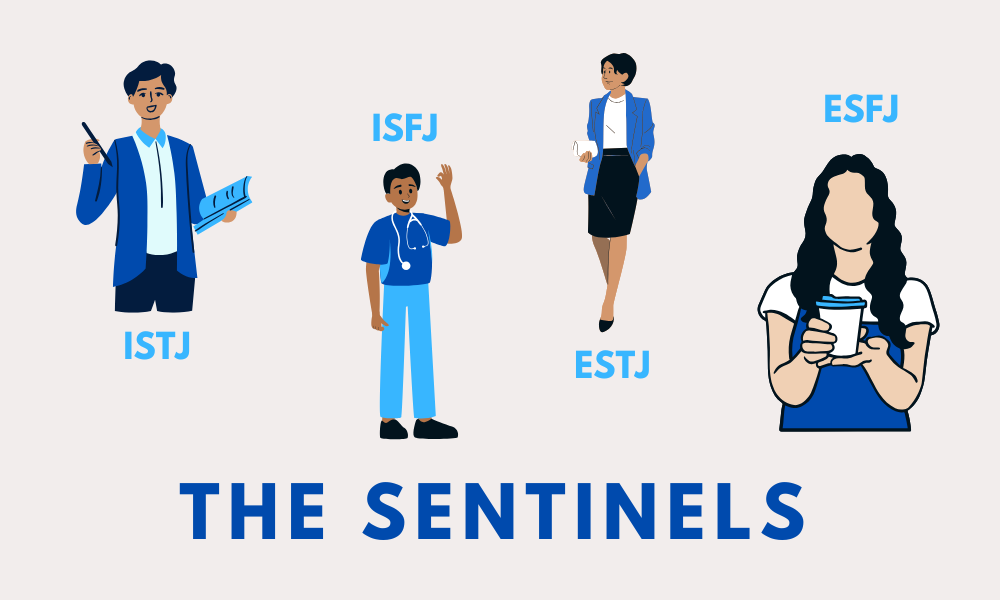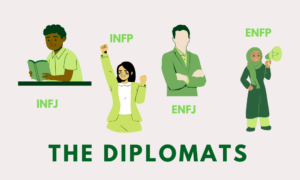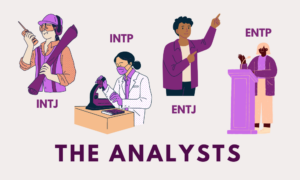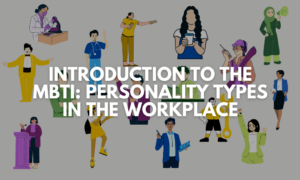Hey there, welcome back to our MBTI series!
Today, we’re diving into the Sentinel squad of the MBTI world: ISTJ, ISFJ, ESTJ, and ESFJ. These “SJ” types are the rockstars of reliability and structure. They’re the people who keep everything running smoothly, whether at work, at home, or anywhere else life takes them.
If you’re new here, feel free to check out our earlier posts for a quick intro to MBTI and a look at the Analyst and Diplomat types. If you’re already familiar, let’s get straight into why Sentinels are basically the glue holding teams together.
Ever worked with someone who’s super organized, loves a good plan, and is always the one you can count on? Yep, you’ve seen a Sentinel in action. They’re not usually the ones shouting for attention, but they’re the ones making sure the lights stay on and the deadlines get hit.
Ready to explore what makes these types tick? Let’s break it down with their strengths, challenges, and some advice to keep things balanced.
ISTJ: The Logistician or Duty Fulfiller – (Introverted, Sensing, Thinking, Judging)
ISTJs are the ultimate planners. They love a solid structure and have a knack for getting things done without fuss. They’re the behind-the-scenes heroes, making sure everything stays on track.
Strengths:
- Super organized and efficient
- Rock-solid dependable
- Practical and always find solutions
- Honest and straightforward
- Calm in stressful situations
- Love testing ideas and learning new methods
Challenges:
- Not big fans of sudden changes
- Can be a little too rigid or critical
- Might miss the emotional side of things
- Can overwork themselves and risk burnout
Advice: ISTJs, your planning skills are amazing, but life doesn’t always stick to the plan. Try to go with the flow sometimes and let others share the load. At work, being open to feedback and new approaches can make your processes even more efficient. Collaboration can be your secret weapon, and a little flexibility can go a long way in team dynamics.
ISFJ: The Defender or Nurturer – (Introverted, Sensing, Feeling, Judging)
ISFJs are the caring types who genuinely want to make things better for everyone around them. They’re all about creating a supportive environment where people feel valued and cared for.
Strengths:
- Warm, friendly, and approachable
- Incredibly dependable and hardworking
- Detail-oriented and thoughtful
- Great at understanding others’ emotions
- Genuinely invested in their work and relationships
Challenges:
- Tend to put others’ needs before their own
- Can avoid conflict, even when it’s necessary
- Internalize stress, which can lead to tension
- Not the biggest fans of change
Advice: ISFJs, don’t forget to take care of yourself too. Setting boundaries and speaking up when needed will help you avoid burnout. In the workplace, make sure your contributions are recognized and don’t hesitate to share your ideas. A little self-advocacy can help you thrive while staying true to your supportive nature.
ESTJ: The Executive or Organizer – (Extroverted, Sensing, Thinking, Judging)
ESTJs are born leaders. They’re great at taking charge, setting goals, and making sure everyone’s on the same page. If there’s a big project to tackle, you want an ESTJ on your team.
Strengths:
- Strong leaders with a clear vision
- Amazing at organizing and delegating
- Confident decision-makers
- Loyal and dependable
- Great at building professional networks
Challenges:
- Can come across as a bit controlling
- May struggle to connect emotionally with others
- Don’t always love being told they’re wrong
- Tend to stick to what they know instead of trying new things
Advice: ESTJs, remember that leadership is about listening as much as it’s about leading. Taking time to understand your team’s needs and strengths will help you build trust and loyalty. At work, encourage innovation and recognize that different perspectives can improve results. Balancing structure with adaptability will make you an even stronger leader.
ESFJ: The Consul or Supporter – (Extroverted, Sensing, Feeling, Judging)
ESFJs are the ultimate team players. They thrive on connection, love helping others, and are all about making sure everyone feels included. If there’s a party or team event, chances are they’re the ones organizing it.
Strengths:
- Super friendly and outgoing
- Great at teamwork and collaboration
- Always looking out for others
- Organized and reliable
- Excellent at bringing people together
Challenges:
- Can be overly sensitive to criticism
- Sometimes neglect their own needs
- Thrive on praise and might fish for compliments
- May avoid conflicts even when they’re necessary
Advice: ESFJs, don’t be afraid to put yourself first sometimes. Your knack for harmony is amazing, but a little conflict can be healthy too. In the workplace, focus on balancing your supportive nature with self-care. Don’t hesitate to delegate tasks or address issues directly when needed—it’s a great way to model healthy boundaries for your team.
Conclusion
Sentinels are the steady, dependable types that every workplace needs. Their knack for organization, practicality, and commitment makes them incredible teammates. By tackling their challenges head-on, they can shine even brighter and keep making a big impact.
Which Sentinel type do you relate to most? How do these traits show up in your daily life? Let us know in the comments—we’d love to hear from you!
Stay tuned for our next post where we’ll jump into the Explorer types. These spontaneous, go-with-the-flow personalities bring a whole lot of creativity and excitement to the table. Don’t miss it!
Want more of the MBTI series?
Never miss an update when you follow our social media!
About LGC
Since 2003 LGC has been building connections between businesses with staffing needs and job seekers looking for new opportunities. Our range of solutions includes temporary and permanent placements (and everything in between) for a variety of industries. With offices located nationwide, we can tap into a dynamic pool of talented professionals. We have a passion for creating partnerships that last and work hard every day to ensure both clients and candidates reach their employment goals.





